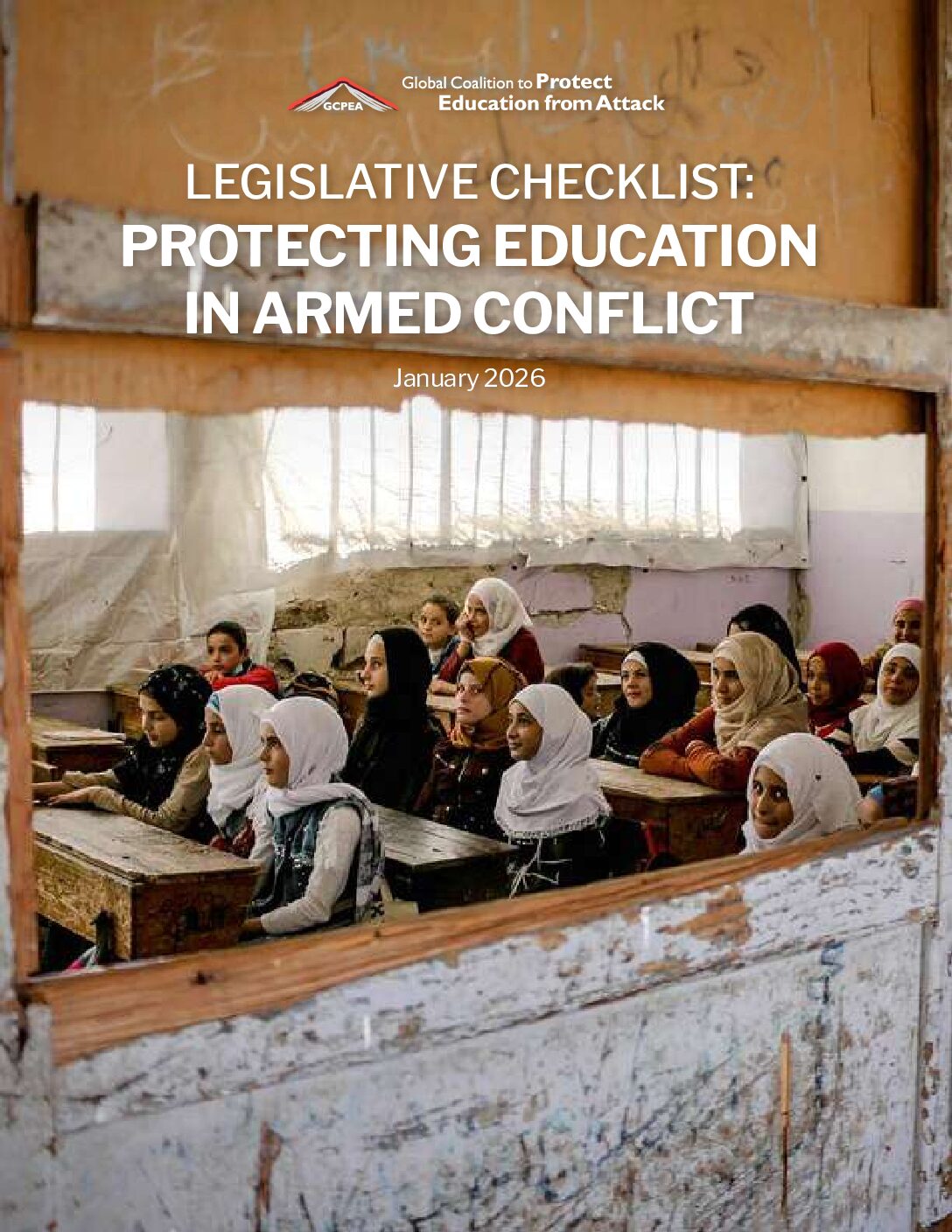GCPEA News
Warring Parties Undermine Students’ Future in Yemen
Mwatana for Human Rights, August 24, 2020
Tuesday, August 18, 2020
Sana’a – Warring parties carried out more than 380 attacks impacting schools and educational facilities in Yemen between March 2015 and December 2019, Mwatana for Human Rights and Ceasefire Center for Civilian Rights said in a new report published today. Attacks and other abuses completely or partially destroyed dozens of schools, disrupted the educational process, and contributed to undermining students’ future in Yemen, Mwatana and Ceasefire said in a statement releasing the report.
The report, “Undermining the Future: Attacks on Yemen’s Schools,” is based on investigative field research conducted by the Mwatana team in 19 Yemeni governorates, including more than 600 interviews with witnesses, victims’ families, parents, and education workers.
“Instead of schools serving as safe places for children to receive an education, they have become dangerous—attacked and occupied by fighters, or used as places to mobilize children before sending them onto the battlefield.”
This report includes attacks on and abuses against and impacting schools that occurred between March 2015 and December 2019. The documented incidents can be grouped into three main patterns: airstrikes impacting schools and educational facilities (153 incidents), attacks impacting schools during ground attacks (36 incidents) and military use and occupation of schools (171 incidents). In addition to these three primary patterns, Mwatana documented 20 other incidents of abuse impacting schools, such as laying landmines near schools and looting.
Radhya Al-Mutawakel, the Chairperson of Mwatana for Human Rights, said: “Instead of schools serving as safe places for children to receive an education, they have become dangerous—attacked and occupied by fighters, or used as places to mobilize children before sending them onto the battlefield.”
Of the documented incidents in the report, the Ansar Allah (Houthi) group bears responsibility for 22 ground attacks, 131 incidents of military occupation and use of schools, and 18 other incidents of abuse or attacks, such as laying mines around schools. The Saudi/UAE-led coalition is responsible for all 153 documented airstrikes, while armed forces and groups of the internationally recognized Yemeni government bear responsibility for 8 ground attacks and 30 incidents of military occupation and use of schools. UAE-backed Southern Transitional Council forces are also responsible for 8 incidents of military occupation and use of schools. Ansar al-Sharia bears responsibility for one of the documented incidents.
Mwatana continues to document attacks on or impacting schools and educational facilities in all Yemeni governorates.
In their report, “Undermining the Future”, Mwatana and Ceasefire made a series of recommendations to Saudi Arabia, the UAE, other coalition member states, the internationally recognized government of President Abd Rabbu Mansour Hadi, the Ansar Allah (Houthi) group, and the UAE-backed Southern Transitional Council, most notably calling on these warring parties to fully adhere to the principles and provisions of international humanitarian law to minimize harm to civilians and civilian objects, including schools. The report also recommends that Iran, the United States, the United Kingdom, France, and others immediately stop selling or transferring weapons to warring parties in Yemen. The report also recommends that the UN Human Rights Council renew and strengthen the mandate of the UN Group of Eminent Experts, with a view to laying a better groundwork for accountability and redress. The report also recommends the Saudi/UAE-led coalition be re-added to the UN Secretary-General’s annual “List of Shame” for abuses against children during armed conflict.
“The warring parties in Yemen keep violating international law, bolstered by the belief that they will continue enjoying impunity and the absence of accountability,” Al-Mutawakel added. “The international community must work to ensure accountability and redress in Yemen, as a key factor in stopping ongoing abuses and achieving sustainable peace.”



